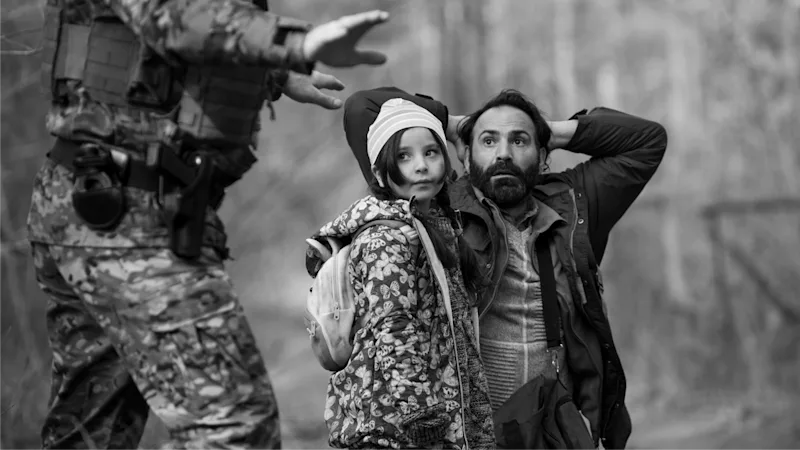Based on true events, the harrowing docudrama The Report charts the decade-long investigation of staffer Daniel J. Jones and the Senate Intelligence Committee as they investigate the CIA’s use of torture in the wake of the 9/11 attacks. The Academy welcomed several of the talents behind the film to discuss its creation including writer-producer-director Scott Z. Burns, producer Jennifer Fox and actors Adam Driver and Jon Hamm.

“When we started working on the project five years ago,” Fox notes, “Obama was still in office and the torture program was over. At that point we felt an urgent need to tell the story so that history didn’t repeat itself, and to try and have a truth told. As we went through the process it just became more and more and more relevant by the day, and then on the campaign trail, we have a presidential candidate saying he would bring back torture or worse. At that point it just became incredibly apparent to us that there was an extremely urgent need. Then it continued on through, as we have been witnessing in real time now, the need for checks and balances. And we hope that the film will shed some light on the importance of that.”

To prepare for his role, Driver spent considerable time with the real Dan Jones, whose sense of decorum struck the actor in the dedication to his mission no matter how long it took. “He didn’t know it was gonna be that long when he started doing his job,” says Driver. “But it’s not his responsibility to go into the higher-ups office and basically demand that he be heard — and give his opinion, period. He was to present facts and let the facts speak for themselves. And even his faith, in spite of what he was uncovering within the checks and balances in those institutions, [is]still very strong. As it is in the movie, there is a way that he can go, a fast-track to getting the information out, but he still has faith in this. I think that Scott’s script does a good job of showing that it isn’t the institutions overall. It’s really a question of people in positions of power, and leadership and accountability. It’s not an indictment of the CIA overall because people within the CIA obviously spoke out against the program. So he has a very level head and methodical approach to work and maybe could be characterized as obsessive, but you kinda always hope that that kind of personality is in those rooms, isolated, especially, obviously, in government.”

“I think we’re indoctrinated at this point in the political landscape to feel like everything is one opposite or the other polar opposite,” Hamm observes. “And the reality is most functional politics takes place in between. As my character in the movie says, ‘Politics is messy, and democracy is messy.’ And that doesn’t mean it doesn’t work. One of the things I’m most proud about being in this film is that this is an example of government being applied correctly and working. It’s not perfect but the truth did come out, a version of it. And Denis’ [McDonogough, Hamm’s character] job was to massage that truth out. To get it out in the most fair, effective way. If he would have just stomped his foot, said, ‘No we’re right, it’s gonna come out this way,’ the other side would have pushed back and they would’ve gotten nowhere. So he realized there had to be a give and take, there had to be some negotiation there, and that’s 95 percent of politics — that’s the way it’s designed. What we’re going through right now is a version of that, the system working by the directions that they set down on a piece of paper 200 and some odd years ago.”
“It was never given a proper airing,” Burns says about the program and its gradual unveiling via the report. He was drawn not only to the story but to the character of Dan, who is emblematic of a certain kind of functionary within the U.S. government. “As a writer, when you meet a character like Dan who goes on this very Kafkaesque odyssey driven by his obsession,” he says, “that’s a really fun character to write. I wanted to use him as a tracer bullet through a system that is beautiful but severely damaged.”

Ultimately though, he concludes, “We never had a conversation about, is this something we as Americans should be doing after 9/11? In World War II, when we liberated the ally camps, or the German camps of our soldiers, a lot of our guys were dying in the snow. They had been beaten, they had been tortured. And there was a debate in this country because we had German prisoners of war in camps all over this country. There was a debate, and Walter Winchell got on the radio and said, ‘We shouldn’t be treating these guys [well]. We shouldn’t be paying them for work. Why are we giving them three meals a day? Why are we doing any of this?’ It went to Congress, and there was a debate about how we should treat these people; and the answer was, we’re gonna keep treating them in accordance with the Geneva Convention. And the reason why is because we’re not Nazis. And somehow we skipped over that conversation, and I leave it for the audience to decide if we didn’t have the conversation because these were Arab men, and they didn’t look or think like us. But I think we have to contemplate that as being a rationale.”
Watch the full discussion:







